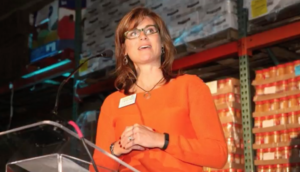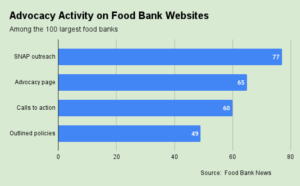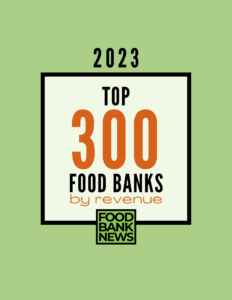Who doesn’t like a good story?
The ability of stories to compel attention and elicit emotion is behind the creation of StoryBank Texas, a project of Feeding Texas, comprised of 21 food banks focused on hunger-relief advocacy and support. StoryBank Texas collects first-person accounts of Texans who have lived with hunger, as a way of humanizing their experience and inspiring compassion.
The project takes after other story-focused initiatives, the most famous of which may be StoryCorps, started 16 years ago as a way to build connections between people and now regularly featured on NPR public radio. In the anti-hunger field, there is Witnesses to Hunger, begun in 2008 at Drexel University’s Center for Hunger-Free Communities to put a face on hunger, and involve those most affected by it in advocacy and policy development.

At StoryBank Texas, client stories are helping to fulfill Feeding Texas’ goal of incorporating community voices into all of its public activities, from PowerPoints to press releases. “We see client inclusion as the next natural path for food banks doing public policy advocacy,” said JC Dwyer, Chief Strategy Officer.
StoryBank Texas got its start in 2014 when Feeding Texas asked its AmeriCorps VISTA members volunteering at its member food banks around the state to begin conducting one-on-one interviews with clients. The effort resulted in the collection of many stories, but not their effective utilization; the stories were mostly idling in various Google spreadsheets and drives. “It felt wrong to be taking peoples’ stories and not doing anything with them,” Dwyer said.
So Feeding Texas stepped up its commitment, hiring a staff member to oversee creation of the website and an archive of all the stories collected. According to Dwyer, there are about 1,000 story entries, including a couple hundred that have been fully fleshed out in terms of having signed agreements, photos, backgrounders, and sometimes audio of the actual interviews.
Some of the stories are available through the public-facing website, while the rest can be accessed only by the member food banks or by permission. For example, “if you’re a journalist, you can petition us to get access to the full database,” Dwyer said.
The staffer, who is helped by an AmeriCorps VISTA member, also provides training on basic interview techniques and ethical story-collection methods designed to honor clients. Client stories are only kept for three years before being archived. “We believe people have a right to be forgotten, so that’s baked into the agreement,” Dwyer said. “If you’re in a bad place now, you may not want to be reminded of it five or ten years from now.”
Feeding Texas’ micro-level story-telling work is expected to complement its newly energized systems-level work in civic engagement. A big push for Feeding Texas in that area is to get out the count among food-bank clients for the upcoming census. “We want to make sure the community we serve is counted accurately so they get the attention they deserve,” Dwyer said.









